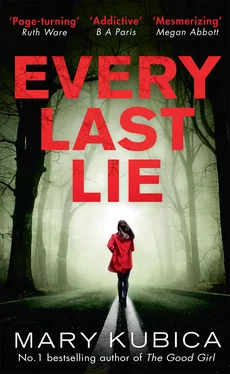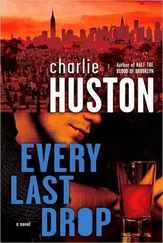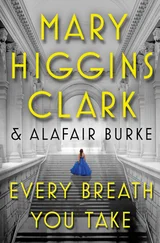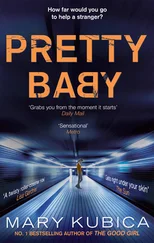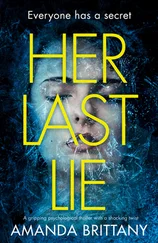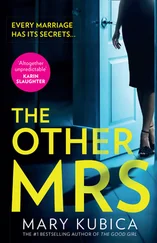It’s when she’s gone for a whole thirty-eight seconds and no more that Clara comes to me, pressing that baby bump into my body, and tells me that she’ll miss me, her words like some sort of voodoo or black magic, making me melt. She has a power over me; I’m under her spell. For the next forty-five minutes, while I’m romping around the playground with Maisie, my pregnant wife will be at home missing me. I smile, filled with warmth. I don’t know what I ever did to deserve this.
Clara stands tall, just inches shy of my own six feet, unshowered, smelling of sweat and eggs, but beautiful beyond compare. In my whole life, I’ve never loved anyone as much as I love Clara. She kisses me in this way that only Clara could kiss, gauzy, diaphanous lips that brush the surface of mine, leaving me completely satisfied and yet greedy and wanting for more. I set my hands on the disappearing curves of her waistline; she slips hers under the cotton of my shirt. They’re damp. She leans into me over the bulge of our baby, and again we kiss.
But as always, the moment passes too soon. Before we know it, Maisie comes skipping down the hall from the bathroom, calling out for me loudly, “Daddy!” and Clara draws slowly away in search of bug spray and sunscreen.
Maisie and I pedal off down the sidewalk while Clara stands on the front porch, watching us go. We haven’t gone more than a house or two when I hear a voice, grouchy and rude. Maisie hears it, too. She also sees her friend Teddy sitting on his own front lawn, picking at the grass, trying to tune out the sound of his dad screaming at his mom. They stand in an open garage, our neighbors Theo and Emily Hart, and it’s pretty damn quick when Theo thrusts her against the garage wall. I slam on the bike brakes, but tell Maisie to pedal on ahead. “Stop when you get to the red house,” I say, a redbrick home just about half a block away.
“Everything okay over there?” I call across the street, stepping off my bike, ready to make a run for it if he attempts a second assault. I’m expecting a response from Theo—something curt and rude, probably even threatening—but instead it comes from Emily as she wipes her hands on the thighs of her jeans and pats down her hair, stepping away from the garage wall as Theo hovers behind her, watching like a hawk.
“Doing great,” she says, with a smile as phony as spam email. “Beautiful day,” she adds, then calls to Teddy, telling him to come inside for a bath. Teddy rises at once, not all gun-shy and reluctant as Maisie is when we suggest a bath. He does as he’s told, and I wonder if it’s simple compliance or something more. Something more like fear. Emily doesn’t strike me as weak—she’s a tall woman, a fit woman—and yet that’s exactly what she is. This isn’t the first time I’ve seen him buttonhole her with my own two eyes, his hands on her in a way that verges on abuse. If he does this out in the open, what does he do behind closed doors?
Clara and I have had this conversation more times than I can count.
You can’t help someone who doesn’t want to be helped.
I watch Emily and Teddy disappear inside, hand in hand. As I continue off down the street, hurrying to catch up with Maisie, who hovers at the end of a driveway waiting for me, I catch sight of Theo and his death glare.
CLARA
The grief comes at me in many ways.
I spend my mornings with sadness, my evenings in melancholy. In private, I cry. I can’t bring myself to confess to Maisie why Nick is not here, and so I’ve taken to lying, to telling the girl who stands before me with pining eyes that her father has run out, that he’s on an errand, that he’s at work. I rely on tired responses—he’ll be home soon; he’ll be home later—thankful when Maisie smiles and prances gleefully away, telling me okay. Granting me amnesty, a reprieve. Later I will tell her. Soon. My father comes and my father goes. He brings dinner and sits beside me at the table and tells me to eat. He sets the food on the fork tines, the fork in my hand. He offers to take Maisie to the playground, but I say no, too afraid that if Maisie leaves without me, she also won’t come home. And so we stay and get soused in sadness. We get marinated in it and submerged. We let the sadness steep into every inlet of our beings, making us tender and weak. Even Harriet the dog is sad, curled into a ball mopishly at my feet, while I hold Felix all day long, staring blankly at Maisie’s cartoons on the TV screen. Max and Ruby, Curious George. Harriet’s ears perk up at the sound of passing cars; a pizza deliveryman at the home next door sends her flying to her feet, mistaking the noise of an idling car for Nick. It’s not Nick, I want to tell her. Harriet, Nick is dead.
Maisie points at something on the TV screen, laughing, tendrils of copper hair canopying her eyes. She’s completely content to watch talking bunnies on the television set for eight hours a day, eating bags full of microwave popcorn for breakfast, lunch and dinner—asking of me, Did you see that? and I nod my head lifelessly, but I didn’t see. I don’t see anything. Nick is dead. What’s there left to see?
But when I am not sad, I’m angry. Angry at Nick for leaving me. For being careless. For driving too fast with Maisie in the car. For driving too fast, period. For losing control and launching headfirst through the air and squarely into that tree, his body continuing to hurtle forward while the car suddenly stopped. I’m also mad at the tree. I hate the tree. The force of the impact wrapped the car around the old oak tree on Harvey Road, while Maisie sat in the back seat, on the opposite side, miraculously unharmed. She sat there as around her the duralumin of the car caved in like a mine collapse, trapping her inside, while in the front seat, Nick breathed his last self-sufficient breaths. The cause: Nick’s warp speed, the sun, the turn. This is what I’m told, a fact that is repeated ad nauseam in the papers and on the news. Crash on Harvey Road leaves one dead. Reckless driving to blame. There is no investigation. Were Nick still alive, he would be given multiple citations for excessive speeding and reckless driving, to name a few. In no uncertain terms, I’m told that this is Nick’s fault. Nick is to blame for his own death. He is the reason why I’ve been left alone with two young kids, a fragmented car and hospital bills. As it turns out, it’s quite expensive to die.
If only Nick had slowed down, he wouldn’t be dead.
But there are other things I’m mad about, too, besides Nick’s lead foot and recklessness. His supply of running shoes strewn behind the front door, for example. They enrage me. They’re still there, and in the mornings, tired and hazy from another sleepless night, I trip over them and feel livid that Nick didn’t have the courtesy to put his shoes away before he died. Damn it, Nick.
The same can be said of his coffee mug abandoned on the kitchen sink and the newspaper spread sloppily across the breakfast nook so that sections of newsprint cascade to the ground, piece by piece. I pick them up and slap them back on the wooden table, angry with Nick for this whole blasted mess.
This is Nick’s fault; it’s his fault he’s dead. The next morning Nick’s alarm clock screams at him at six o’clock, as it always does—a force of habit, as is Harriet who rises to her feet in the hopes of being walked. Today Harriet will not be walked; tomorrow Harriet will not be walked. Your husband, ma’am, that police officer had said, before he welcomed Felix and me into his patrol car and drove us to the hospital where I signed an authorization form, renouncing my husband’s eyes, his heart, his life, was driving too fast. Of course he was, I tell myself. Nick always drives too fast. The sun, he blamed, and again, He was driving too fast.
Читать дальше
